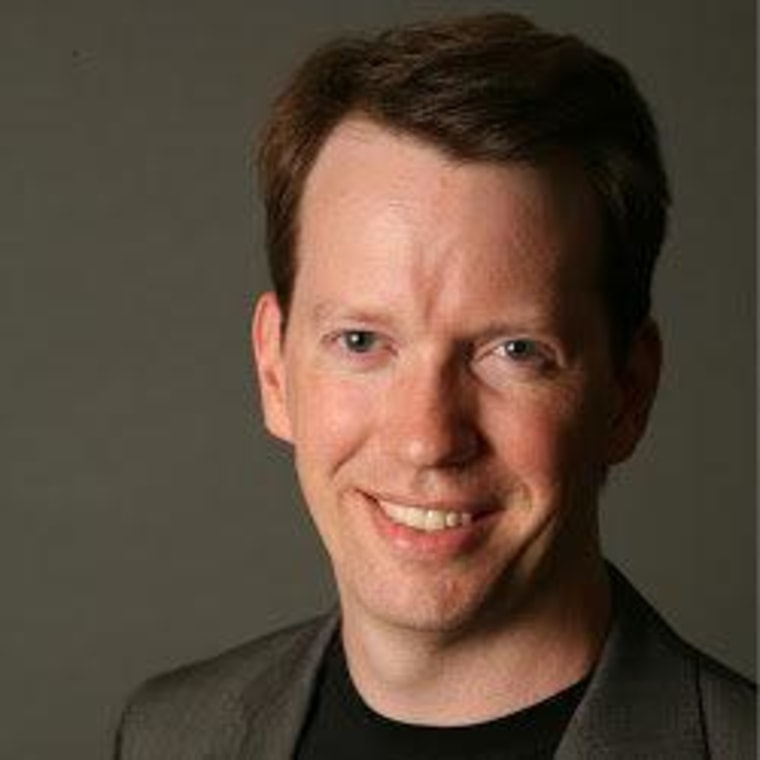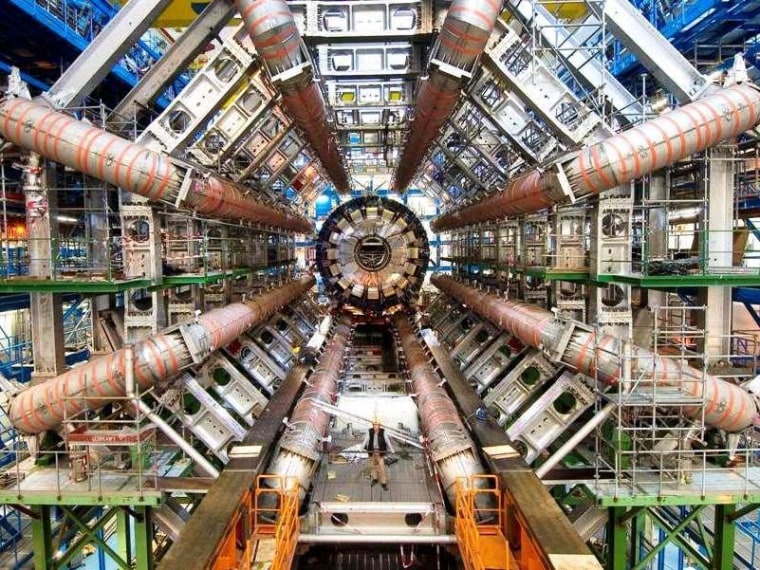They may not be on a par with alien goo or liver-eating mutants, but there's a whole collection of real-life X Files that physicists are puzzling over. Some cases eventually will be solved, like the hunt for the elusive Higgs boson. Some will fizzle out, like the case of the faster-than-light neutrinos. And some will baffle the boffins for years and years, like the mystery of dark energy.
Two sharp-eyed truth-squadders discussed how scientists investigate the X Files of physics — and how you can tell when a scientific case is really, truly closed — on "Virtually Speaking Science," an hourlong talk show hosted by yours truly on Wednesday.
Sean M. Carroll and Matt Strassler aren't FBI agents, although they could probably teach Fox Mulder and Dana Scully of "The X Files" a thing or two about critical thinking. They're theoretical physicists (Sean at Caltech, Matt at Rutgers) as well as accomplished writers and bloggers. Carroll is the author of several books, including "The Particle at the End of the Universe," his account of the Higgs boson search. Strassler performs reality checks on the Higgs quest and other big topics in physics on his blog, "Of Particular Significance."
What kinds of X Files are we talking about? Here a sampler:
- The possibility that dark-matter particles are knocking into each other at the center of our Milky Way galaxy, annihilating themselves and giving rise to strange gamma-ray emissions.
- The suggestion that there's an as-yet-unidentified fourth "flavor" of neutrinos, based on an unexplained excess of oscillations in data from Fermilab's MiniBooNE experiment.
- The speculation that a massive wall of fire exists around the event horizon of every black hole, incinerating anything that falls toward the gravitational singularity.
- The puzzle surrounding the size of the proton, which focuses on the fact that two different methods to measure the size have come up with different answers.
The proton problem is "one of those classic scientific puzzles where what's actually going on is probably some other type of issue in the experiment, or the interpretation of the experiment, that doesn't have anything to do with the radius of the proton," Strassler told me during our pre-show interview. "There's a small chance that it's something fundamental and really deep, but it's more likely to turn out to be some little detail."
That sort of thing goes on all the time in science, he said. In fact, some degree of uncertainty surrounds many of the experimental results produced by the scientific process. Professional scientists understand that's "par for the course," Strassler said. "The only thing that's unusual is the level of media attention."


Are there any tricks of the trade that regular folks can use to figure out how to judge a scientific claim's solidity? Actually, there are plenty. But Strassler's top tip is to develop a better understanding of how news outlets work, and how scientific announcements work.
"We all know how to read advertisements. We know they're selling us something," he said. "But we don't necessarily know how to read an article on the front page of The New York Times or an article in Newsweek. They have a big, exciting topic, but when you look closely, you realize that it's only one person saying this. Or there's been one experiment that shows this. If there's only one, it may be nothing. It may go away."
Carroll said scientists themselves are getting into the public outreach field — either by blogging, as he does on Preposterous Universe, or by creating videos and other user-friendly materials about their research. "It'd be great if more scientists wanted to become regular contributors, to at least try to explain their most recent work," Carroll said.
"I can play devil's advocate on that one," Strassler said. "I worry about us generating so much information that no one's able to sift through and get to the meat of what we really know and what we don't."
"That's a very interesting topic," Carroll replied. "There's a lot of information out there. In some sense, we could still use more, but it's a matter of finding it. That's the big challenge."
To find the podcast for Wednesday's show, just follow this link. You can also cruise through the "Virtually Speaking Science" podcast archives at BlogTalkRadio or iTunes, or click on the links below.
'Virtually Speaking Science' podcasts:
- Ig Nobel impresario Marc Abrahams on weird science in 2012
- Paul Doherty on the Curiosity mission and the year in science
- Shawn Lawrence Otto on the election and the climate issue
- Sean Carroll on what lies beyond the Higgs boson
- Alan Stern on the Uwingu mystery space venture
- George Djorgovski on the future of immersive virtual reality
- JPL's Dave Beaty previews Curiosity's mission on Mars
- SETI Institute's Seth Shostak about aliens and UFOs
- Paul Doherty on solar eclipses and the transit of Venus
- Veronica Ann Zabala-Aliberto on spaceflight and Yuri's Night
- JPL's Dave Beaty on the search for life on Mars
- Shawn Lawrence Otto on science and politics
- Ig Nobel impresario Marc Abrahams on silly science
- Rocket scientist Robert Zubrin on Mars exploration
- Propulsion expert Marc Millis on interstellar spaceflight
- Sean Carroll on the puzzling frontiers of physics
- Rand Simberg on the private-enterprise vision for spaceflight
- Martin Hoffert on the future of energy policy
- George Djorgovski on science in virtual worlds
- Alan Stern on suborbital research and NASA's mission to Pluto
- Col. 'Coyote' Smith on the outlook for space solar power
- Tim Pickens on rocket ventures and the Google Lunar X Prize
Alan Boyle is NBCNews.com's science editor. Connect with the Cosmic Log community by "liking" the log's Facebook page, following @b0yle on Twitter and adding the Cosmic Log page to your Google+ presence. To keep up with Cosmic Log as well as NBCNews.com's other stories about science and space, sign up for the Tech & Science newsletter, delivered to your email in-box every weekday. You can also check out "The Case for Pluto," my book about the controversial dwarf planet and the search for new worlds.
"Virtually Speaking Science" airs on Wednesdays on BlogTalkRadio. In addition to Alan Boyle, the hosts include Tom Levenson, director of MIT's graduate program in science writing; and Jennifer Ouellette, science writer and "Cocktail Party Physics" blogger.
First published at 7:08 p.m. ET Feb. 6, last updated at 10:30 p.m. ET.
